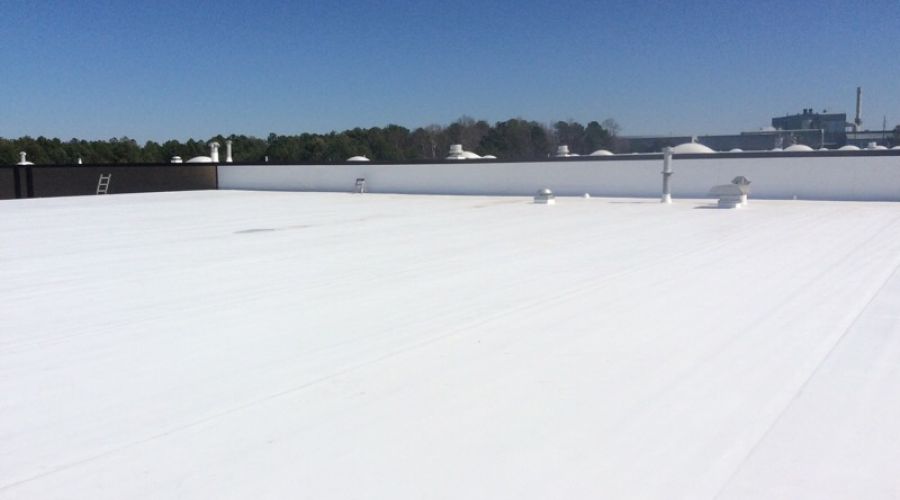Lightweight, reinforced, highly reflective, light colored membrane used for roofing since the early 1970s. Highly resistant to chemical atmospheres, ozone, ultraviolet light, tears and extreme weather conditions. Exhibits excellent fire resistance and seam strength due to heat welding.
BENEFITS
Thermoplastic PVC is a time-tested and extremely cost-effective solution. Fortunately, choosing PVC based on its inexpensive price tag will not compromise environmental factors, as the material is highly reflective and recyclable. It also carries an efficient Energy Star rating, and in many cases is eligible for cool roof paybacks and LEED credit qualification.
For businesses with chemical, oil, or grease exposure, PVC offers a highly resistant option. While various other roofing options may be permeable to cooking grease, motor oil, or industrial by-products, among other things, PVC stays strong, preserving your roof.
Once in place, PVC is a strong material that tends not to break or tear, even with some impact or building movement. Relatively light for the protection it provides, a PVC roof can also be reinforced with surface coating or roofing ballast.
Businesses can choose from PVC roofing membranes of varying thickness depending on the threat of penetration or damage. And, regardless of thickness, the surfaces of single-ply PVC roofs are highly reflective against solar heat and damaging UV rays. A standard PVC roof will maintain its reflectivity at peak performance for years, with minimal performance degradation over time.
INSTALLATION
Regardless of whether you are installing a roof with new construction or reroofing an existing building, PVC can easily be mechanically fastened or fully adhered. PVC causes no significant additional installation difficulties over other single-ply roofs, so businesses can make their decision based on long-term benefits, not loss of time or money up front.
Using wide membrane sheets for PVC roofing means faster install times and reduced labor costs, as well as fewer seams in the final product. PVC roofing material also maintains its shape and size, allowing very little stretching and deformation during installation.
